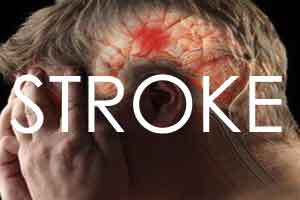- Home
- Editorial
- News
- Practice Guidelines
- Anesthesiology Guidelines
- Cancer Guidelines
- Cardiac Sciences Guidelines
- Critical Care Guidelines
- Dentistry Guidelines
- Dermatology Guidelines
- Diabetes and Endo Guidelines
- Diagnostics Guidelines
- ENT Guidelines
- Featured Practice Guidelines
- Gastroenterology Guidelines
- Geriatrics Guidelines
- Medicine Guidelines
- Nephrology Guidelines
- Neurosciences Guidelines
- Obs and Gynae Guidelines
- Ophthalmology Guidelines
- Orthopaedics Guidelines
- Paediatrics Guidelines
- Psychiatry Guidelines
- Pulmonology Guidelines
- Radiology Guidelines
- Surgery Guidelines
- Urology Guidelines
Patient position has no impact on disability outcomes in acute stroke: NEJM

A trial involving more than 11,000 patients has revealed sitting up or lying flat after a stroke makes no difference to their recovery.
The research led by The George Institute for Global Health set out to discover if the bed head position of people with the most common form of stroke, (acute ischaemic) reduced death or disability.
Some studies had indicated lying flat may improve recovery by increasing blood flow in the main arteries to the brain, but there were fears it also raised the risks of pneumonia.
The worldwide results published in the New England Journal of Medicine found the position of a patient's head does not affect outcomes.
Lead investigator Professor Craig Anderson of The George Institute said: "Many stroke specialists believe that the way the body is positioned after stroke makes a difference to their patient's recovery. But, there was really no conclusive evidence to back this up.
"We know the first 24 hours of care post-stroke is crucial to recovery, so it was vital to find out if sitting up or lying down flat could make any difference.
"What we found is that head position does not matter so much over and above good nursing care. It does not help with recovery, with mortality or how a patient feels. However, we also found there were no significant harms associated with either lying down flat or sitting up."
The study is the largest ever randomised nursing care trial and took place at 114 hospitals in nine countries (UK, Australia, China, Taiwan, India, Sri Lanka, Chile, Brazil and Colombia).
Patients were either assigned to lie flat with their face upwards or with their head raised to at least 30 degrees during the first 24 hours after being admitted to the hospital for a stroke. They were then assessed 90 days later.
Professor Craig Anderson said the results were very reassuring to lower to middle income countries, where lying flat is more commonly practiced due to the lack of motorized beds.
"What we found is that patients found lying flat somewhat uncomfortable, but it certainly didn't make their condition any worse. Our findings suggest a review of current clinical practice guidelines is warranted," Professor Anderson added.
The majority of patients who took part in the study had mild to moderate severity strokes, with an average age of 68 years.
For more details click on the link : Craig S. Anderson, Hisatomi Arima, Pablo Lavados, Laurent Billot, Maree L. Hackett, Verónica V. Olavarría, Paula Muñoz Venturelli, Alejandro Brunser, Bin Peng, Liying Cui, Lily Song, Kris Rogers, Sandy Middleton, Joyce Y. Lim, Denise Forshaw, C. Elizabeth Lightbody, Mark Woodward, Octavio Pontes-Neto, H. Asita De Silva, Ruey-Tay Lin, Tsong-Hai Lee, Jeyaraj D. Pandian, Gillian E. Mead, Thompson Robinson, Caroline Watkins. Cluster-Randomized, Crossover Trial of Head Positioning in Acute Stroke. New England Journal of Medicine, 2017; 376 (25): 2437 DOI: 10.1056/NEJMoa1615715

Disclaimer: This site is primarily intended for healthcare professionals. Any content/information on this website does not replace the advice of medical and/or health professionals and should not be construed as medical/diagnostic advice/endorsement or prescription. Use of this site is subject to our terms of use, privacy policy, advertisement policy. © 2020 Minerva Medical Treatment Pvt Ltd